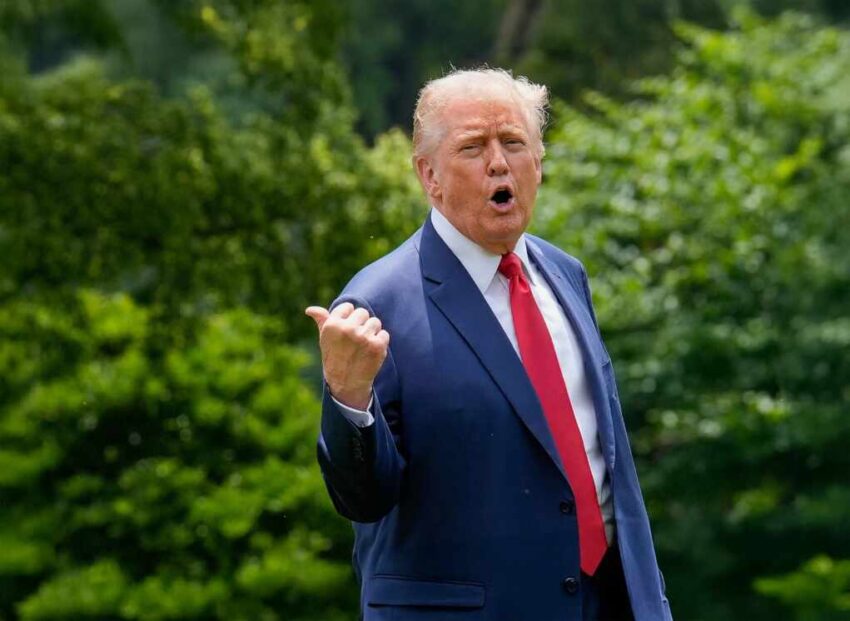President Trump’s direct mediation between Armenia and Azerbaijan marks a turning point in U.S. foreign policy, challenging decades of failed globalist diplomacy and putting American interests—and constitutional leadership—back at the center of international conflict resolution.
Story Snapshot
- Trump hosts Armenian and Azerbaijani leaders for unprecedented peace talks after years of failed globalist mediation.
- Summit seeks to end the protracted Nagorno-Karabakh conflict, which has fueled instability, violence, and humanitarian crises.
- U.S. involvement aims to restore American leadership and counter regional interference from Russia and Turkey.
- Ceasefire remains fragile, with both sides holding firm to core demands amid deep-seated mistrust and historical grievances.
Trump’s Mediation Challenges Decades of Failed Globalist Policy
President Trump’s high-profile summit with Armenian Prime Minister Nikol Pashinyan and Azerbaijani President Ilham Aliyev in Washington signals a decisive break from the passive, bureaucratic approach that allowed the Nagorno-Karabakh conflict to fester for generations. For years, international organizations and so-called global coalitions failed to deliver stability, leaving families displaced and violence unchecked. Supporters of the initiative, including U.S. Representative Robert Aderholt—a co-chair of the Congressional Azerbaijan Caucus—called the agreement ‘a powerful example of what strong American diplomacy can achieve.’
The summit comes after a renewed bout of violence in the region, which exposed the ineffectiveness of previous ceasefires brokered by Russia and the OSCE Minsk Group. By placing the weight of the U.S. presidency behind peace efforts, Trump is sending a clear message: America will no longer stand by while regional powers undermine stability and threaten the sovereignty of smaller nations. This approach reflects a broader conservative demand for policies rooted in strength, accountability, and a rejection of the failed “international community” template that too often left American values and interests sidelined.
Historical Grievances and Regional Power Struggles Prolong the Conflict
Nagorno-Karabakh, a mountainous region in the South Caucasus, has been the focus of intense ethnic and territorial disputes since the collapse of the Soviet Union. While internationally recognized as part of Azerbaijan, the area is primarily populated by ethnic Armenians. According to the International Crisis Group, involvement by Russia and Turkey has complicated reconciliation efforts. The legacy of Soviet manipulation and the lack of effective Western leadership have allowed radical actors and authoritarian regimes to exploit the conflict for their own gain.
Both Armenia and Azerbaijan have suffered grave humanitarian costs, with families torn apart by war, mass displacement, and economic devastation. The repeated breakdowns of ceasefires and the inability of globalist institutions to enforce peace have fueled frustration among ordinary citizens. For American conservatives, these failures underscore the need for a robust, constitutionally grounded foreign policy that puts American interests and moral clarity ahead of endless negotiation and appeasement of hostile regimes.
U.S. Leadership: A Test of American Resolve and Conservative Principles
By stepping into the fray, President Trump is reasserting America’s role as a force for peace and stability—but on American terms. The summit is more than a diplomatic gesture; it is a test of whether the U.S. can lead with strength, defend the rights of sovereign nations, and reject the globalist agendas that erode constitutional values and American influence. This approach is welcomed by many who see previous administrations’ foreign policy as weak, unfocused, and too eager to appease international bodies with little regard for U.S. security or traditional family values.
Trump’s demand for accountability from all parties—and his skepticism of superficial agreements—resonates with conservatives who value results over empty promises. The administration’s emphasis on humanitarian relief and regional stability is grounded in a belief that American leadership, not bureaucratic compromise, offers the best hope for lasting peace. Still, the road ahead is uncertain: the ceasefire remains fragile, and the deep ethnic and political grievances on both sides will require vigilance against further escalation or manipulation by foreign actors.
Trump to host Armenia, Azerbaijan leaders ahead of peace pledge as White House eyes Nobel Peace Prize https://t.co/lxtma9Ysuq pic.twitter.com/9vTq2K4B4O
— World News (@Worldnews_Media) August 8, 2025
Long-Term Impact: Restoring Order or Risking Renewed Instability?
If Trump’s mediation succeeds, it could set a new standard for U.S.-led conflict resolution—one based on strength, clarity, and a commitment to the rights of sovereign peoples. A durable peace would not only relieve humanitarian suffering but also strengthen America’s hand against adversaries who exploit instability for their own gain. However, failure to address core issues or enforce the terms of any agreement could lead to renewed instability, risking further displacement, trauma, and erosion of conservative values in a volatile region. The outcome of these talks will test whether principled, constitutional leadership can prevail where decades of globalist policy have failed.
Sources:
Nagorno-Karabakh | Geography, Map, History, Conflict, & Facts | Britannica
Chronology of Events – Institute of Armenian Studies
Nagorno-Karabakh conflict – Wikipedia
History of Nagorno-Karabakh – Wikipedia
Nagorno-Karabakh: Timeline Of The Long Road To Peace
Click this link for the original source of this article.
Author: Editor
This content is courtesy of, and owned and copyrighted by, https://republicanpost.net and its author. This content is made available by use of the public RSS feed offered by the host site and is used for educational purposes only. If you are the author or represent the host site and would like this content removed now and in the future, please contact USSANews.com using the email address in the Contact page found in the website menu.








